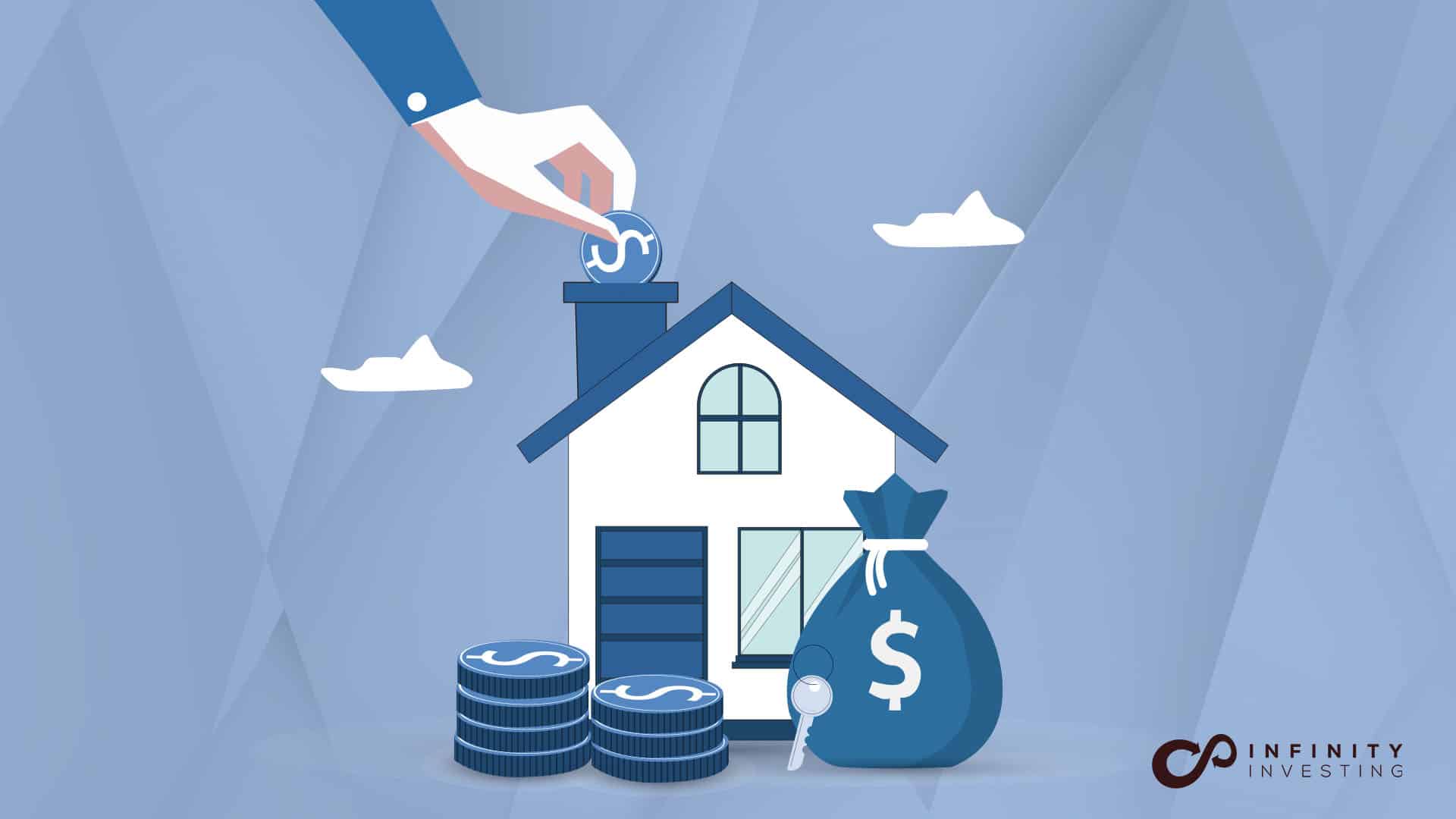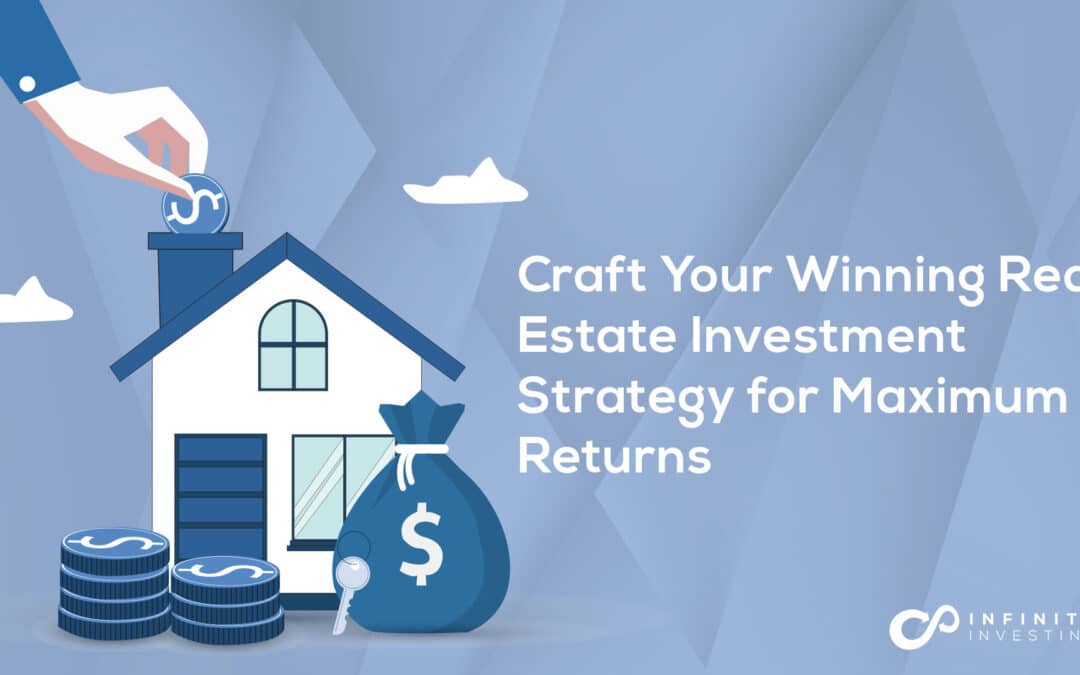
Real estate investing can be a profitable venture, but it requires mindfulness, dedication, and a certain degree of risk. There’s no one-size-fits-all investment strategy for real estate. The key is to know your market, your finances, your risk tolerance, and your strengths. These critical factors will determine which approach is best suited to your unique situation. The good news is that real estate investing comes in so many forms that there’s a workable approach for nearly any serious investor.
Key Takeaways
- You need to understand the complexities of both the national and regional real estate markets to craft a solid real estate investment plan.
- Your risk tolerance plays a major role in your approach to real estate investing.
- The best real estate investment strategy will play off of your personal strengths so you can turn a talent for hospitality, renovation, or negotiation into a valuable asset.
Infinity Investing Featured Event
In this FREE event you’ll discover how the top 1% use little-known “compounders” to grow & protect their reserves. Our Infinity team of experts show you how to be the best possible steward of your finances and how to make your money and investments work for you instead of you working for them. Regardless of your financial situation today, you’ll have a road map to get to where you want to be.
Research the Market
Before you invest time and money into real estate ventures, it’s crucial that you thoroughly research and evaluate the market. It’s unwise to make any type of investment in real estate if you don’t have a solid understanding of how the market works and what the future predictions look like.
National Trends
One recent concern for investors has been the Federal Reserve’s persistent hiking of the federal funds rate. The federal funds rate determines the interest on overnight loans between commercial banks. This rate also indirectly impacts the interest rate on home loans, auto loans, credit cards, and other types of lending. This rate increased steadily from March 2023 through August 2024, reaching the highest level recorded in over 22 years. After this prolonged series of hikes, the rate has finally plateaued through three consecutive meetings and is expected to decrease in 2024.
The high interest rate is just one of many factors that have contributed to the recent seller’s market for homes. Inflation has kept home prices high, and homes have been in low supply. Many current homeowners are locked into low interest rates that they don’t want or can’t afford to give up. These are all important considerations if you’re planning to invest in real estate, as you need to consider both the upfront cost of your investment and the likelihood of getting a good return.
Local Factors
In addition to national trends, real estate investors also need to consider the unique market in their local area. This includes factors like:
- Employment levels.
- Type of employment.
- Average salary.
- Demographics.
- House price.
- Real estate supply and demand.
The best local market will exhibit plentiful job opportunities with good salaries, median household incomes that can accommodate the median home prices, and less than a six-month housing supply. As an investor, you should keep an eye out for markets where you can step in and fill a need. For example, many lower- and middle-income areas have a real need for affordable homes that are in line with what families earn there. Flipping homes that are currently unlivable and putting them on the market at affordable prices can yield great results in these areas.
Determine Your Risk Tolerance
Your risk tolerance is how much you can afford to put on the line when you’re investing. If you have a high risk tolerance, you’re willing to throw a lot of money at your investment strategy in the hopes of a big win, even though you know you stand to lose some or even all of what you put in. A low-risk investor makes modest investments in purchases are are more of a sure thing. Your age and financial situation play a big part in your risk tolerance.
The risk associated with an investment will vary by individual as well. A new investor nearly always faces a higher level of risk because they’re less familiar with the game. A seasoned investor can take on a project that seems to carry a higher risk because their knowledge and contacts give them an edge.

Evaluate Your Strengths
Real estate investing can happen in so many different ways that one investor’s strategy may seem to have nothing at all in common with another’s. Knowing your personal strengths will help you determine which real estate investment strategy best fits your lifestyle, preferences, and financial situation.
Renting Residential
If you have the time and dedication to manage a rental home, this is an effective way to earn a steady investment income. You need to find a property that will rent for more than the monthly mortgage payments so you can steadily pay off your loan while earning additional income on top. You also need to factor in the costs of maintaining the home and managing the residents to ensure that you’re still earning a solid profit at the end of the day.
If you own a duplex, you can even practice some house hacking and live in one half of the property while paying your mortgage with income from the other half.
Renting Vacation Homes
If you own a home in a desirable location, you may opt to manage a vacation rental rather than a residential rental. This requires more management on your part. You’ll need to clean the property between renters and respond to guests’ needs during their stays. If you have a knack for hospitality and enjoy meeting new people, this investment strategy will utilize your talents perfectly.
Flipping
House flipping is the process of purchasing a fixer-upper and rehabilitating it. Ultimately, the renovated home should sell for more than your initial purchase and the renovations combined. This investment strategy is best suited to individuals with an in-depth understanding of home inspections and home renovations. Whether you have the skills and knowledge to fix the home yourself or you plan to hire out the work, you must be able to accurately estimate the costs of the project or you risk losing your investment and then some.
Live-in flipping
Live-in flipping is well-suited to investors who don’t mind living with minimal amenities and plenty of chaos. Singles or couples who enjoy the thrill of the renovation project may be perfectly comfortable living in the home they’re working on. This approach is much more challenging for a family with children because a home that doubles as a worksite isn’t always safe for kids. Live-in flipping does offer added earning potential for those who can manage it because you don’t have to pay a separate mortgage to live elsewhere while you’re working on each project.
Real Estate Wholesaling
If you have an eye for great properties and a keen skill at negotiating, you may want to try real estate wholesaling. Real estate wholesalers step in as the middleman between a home buyer and home seller. The wholesaler eases some of the work involved in the selling process for the current homeowner and takes a fee for their efforts.
Explore Alternatives to Physical Real Estate
If you’re not comfortable with the complexities of purchasing physical real estate yourself, you can invest in this market with a more hands-off approach. These strategies are ideal for maximizing your returns with minimal effort on your part.
Investing in Trusts
Real estate investment trusts (REITs) function as mutual funds, allowing investors to put their money into real estate without purchasing the physical property. The trust makes and manages the purchases while the investors collect the dividends. The REIT pays some or all of its taxable income out to the shareholders so it doesn’t have to pay corporate tax. The average annual total return on REITs often outperforms stocks. Self-storage properties had the most impressive performance with an 18.8% average annual total return between 1994 and 2021.
Joining an Investment Group
A real estate investment group (REIG) allows you to pool your funds with other like-minded individuals while still retaining some control over how the funds are managed. REIGs are managed privately, so the structure, rules, and membership fees vary from one to the next. Make sure you have a solid understanding of what you’re putting in and what you will get out if you choose this investment strategy.
Hone Your Strategy
Whatever approach you take, it’s best to dig your heels in and stick with it for the long haul. Real estate is typically a long-term investment. The longer you practice a particular strategy, the better you’ll get. With time, knowledge, and hands-on experience, you can see your real estate investment strategy take off and deliver maximum returns. Our Infinity Investors workshop can help equip you with the skills and information you need to pinpoint the ideal strategy for your needs so you can hit the ground running.
Infinity Investing Featured Event
In this FREE event you’ll discover how the top 1% use little-known “compounders” to grow & protect their reserves. Our Infinity team of experts show you how to be the best possible steward of your finances and how to make your money and investments work for you instead of you working for them. Regardless of your financial situation today, you’ll have a road map to get to where you want to be.

